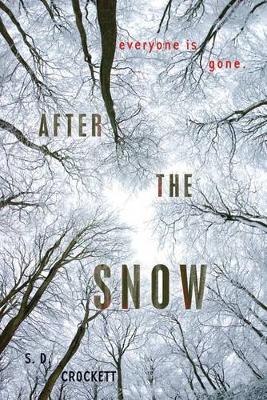
kimbacaffeinate
Written on Mar 3, 2012
The tale is told from the perspective of fifteen year old Willo. Willo was born on the mountains and lives in a home of the grid with his father, siblings and a group of strangers who have formed a family unit. The story opens with Willo sitting in a cluster of trees and rocks above his home. We learn that his entire family has been taken. He is alone and fearful of returning to the house. He can still hear their screams. He takes solace and seeks comfort from his companion “dog”. The author through Willo gives us a brief history of what life was like on the mountain, of his father and his family. Here the author gives us clues as to what may have happen. We learn that everything is controlled by ANPEC. They guard the settlements, control food and electricity and arrest those without papers. Willo decides to travel to the home of his sister to get answers and find his father. His journey has him facing death, saving a young girl, named Mary and entering the settlements. As he travels, we learn more about his father and his role in an underground movement. We meet many different characters throughout the tale. Some help Willo and others use him. Crockett gives each character originality and depth.
I want to thank netgalley and MacMillian publishing for providing this ARC in exchange for my unbiased review.
The dialect through the entire book is told in the voice of Willo. This language is entirely in slang and at first I thought the author’s intent was to paint him as uneducated, however we later learn he is simple. Willo’s companion “dog” is dead. Willo has cleaned the bones and sewn them, along with the dog hide onto his cap and coat. Picture this child walking around with the skull of a large dog on his head. All of Willo’s decisions in the first half of the book are made after consulting “dog”. The dog's voice is lyrical and spiritual as he guides Willo. Willo doesn’t trust easily and is leery of the people he meets. He connects with Mary, and even when he is away from her he makes plans to find her. Willo faces a lot of difficult situations and relies on his father’s teachings and the voice of “dog”.
The tale moves at an uneven clip. It starts of strong, then in the middle it becomes stagnant and it is here that I almost quit the book. I seriously thought about making this my first DNF. I set the book down for the evening and resumed reading the next day. The third part of the book picks up and in my opinion was the strongest part of the tale.
The world-building frustrated me. Crockett paints the ice age beautifully and I could picture the mountains and over run settlements but the lack of information kept me from truly connecting. I cannot tell you for sure the time period. There is a mention of WWI, so this may have occurred before WWII? I know it takes place somewhere in Europe. I know that people dream of escaping to China. We learn the settlements and cities are controlled by a militia under the control of ANPEC. There is a movement to escape this oppressive area and those in the movement study and follow a book by John Blovyn. As we learn more about Willo's Dad, the story loses some of its plausibility. I find it hard to believe Willo's Dad would not have better prepared him. While the author hints of tales told around campfires to the young, I find it difficult to believe that, at fifteen, Willo's father wouldn't have passed on all knowledge of the movement to him.
Overall I was impressed by Crockett's writing style and imagery. I was disappointed by the pace and frustrated by the world-building. I am however glad that I continued reading. In my personal opinion, with Willo’s voice and a more tightly woven tale this could have been absolutely brilliant.
